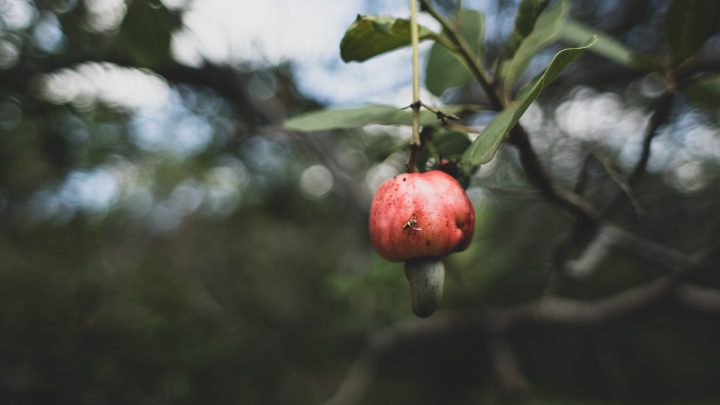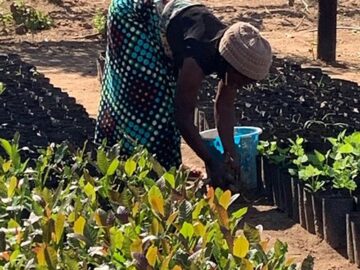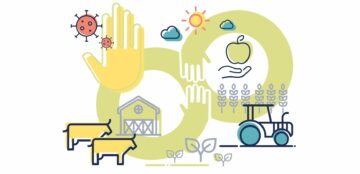Germany and Brazil join efforts to improve cashew nut production in Ghana

A project that contributes to poverty reduction and food security.
Cashew nuts are becoming increasingly popular around the world. In 2019-2020, they accounted for 17% of tree nut production and ranked third after almonds and walnuts (UNCTAD, 2021). Cashew (also known as cashew nut) is a tropical evergreen tree that originated in North-eastern Brazil and it has a great capacity to adapt to low fertility soils, high temperatures and water stress (EMBRAPA, 2016). It is currently produced in 46 countries in Africa, Asia and Latin-America and the Caribbean (UNCTAD, 2021).
The main product of this tree is the kernel inside the seed, but other by-products are also extracted from other parts (cashew shell, pseudofruit, leaves, etc.). The commercialization of cashew by-products, which are often discarded as agricultural waste, can help diversify revenue sources and generate more value (UNCTAD, 2021).
Africa produced more than half of the global raw cashew nut output in the 2014–2018 period (UNCTAD, 2021). However, its production chain faces several challenges such as limited access to information, technology and financing options (UNOSSC/UNDP, 2022).
Brazil and Ghana are two of the major producers – in 2014-2018 Brazil was the world’s tenth largest producer and Ghana the third largest exporter of raw cashew nuts (UNCTAD, 2021) – and they both have similar natural production conditions. This has led to the implementation of a Triangular Cooperation project between these two countries and Germany, dedicated to improving cashew planting material and by-product processing technologies in Ghana.
Its objective was to improve the efficiency and quality of cashew production and processing by developing disease-tolerant, high-yielding varieties adapted to local conditions and by introducing new processing technologies. This way, the initiative aimed to contribute to the reduction of poverty among families, food security, climate change mitigation and the empowerment of rural women.
As a result of the project, about 20 experts and 200 farmers benefited from training sessions, 7 hectares of plant nurseries were established and more than 400,000 cashew seedlings were distributed in Ghana. The adaptation of 5 Brazilian cashew varieties to local conditions in Ghana – high-yielding and disease-tolerant – and the improvement of fruit processing techniques, were among this project’s main outcomes (UNOSSC/UNDP, 2022).
The initiative was implemented between 2017 and 2020 and it was carried out by the Brazilian Agricultural Research Corporation (EMBRAPA by its Portuguese acronym) and the Ministry of Food and Agriculture of Ghana (MOFA), as recipient. It was supported by the Brazilian and German international cooperation agencies (ABC and GIZ, respectively).
February 2023
***
Source: SEGIB based on Agencies and Directorates-General for Cooperation, EMBRAPA (2016), UNOSSC/UNDP (2022) and UNCTAD (2021).
Photograph: Anton Shuvalov in Unsplash

